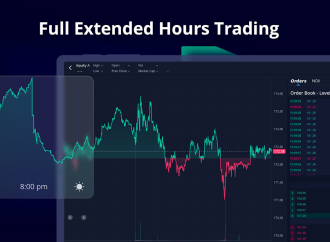As a seasoned investor, you know that the market can be unpredictable. Sometimes prices soar to new heights, while at other times they plummet without warning. But what happens when fear takes over and panic selling sets in? In this blog post, we’ll delve into the psychology of panic selling – uncovering why investors are
As a seasoned investor, you know that the market can be unpredictable. Sometimes prices soar to new heights, while at other times they plummet without warning. But what happens when fear takes over and panic selling sets in? In this blog post, we’ll delve into the psychology of panic selling – uncovering why investors are often driven by emotions rather than logic during these times of crisis. By understanding the emotional investing traps that can lead to costly mistakes, you’ll be better equipped to navigate turbulent markets with confidence and avoid making decisions that could harm your portfolio in the long run. So sit back and get ready for an insightful exploration of how our brains react under stress – and how you can build resilience against it!
What is Panic Selling?
When the stock market crashes, it can feel like the world is ending. Images of the Great Depression flash before your eyes and you worry that you’ll lose everything if you don’t sell now. This is what’s known as panic selling, and it’s one of the most common mistakes investors make.
Why does panic selling happen? There are a few psychological factors at play:
1. Loss Aversion: People are more motivated to avoid losses than they are to seek gains. So when prices start falling, we feel a deep need to get out before we lose any more money.
2. Herd Mentality: We’re social creatures and tend to follow the herd. When everyone around us is selling in a panic, it’s hard not to do the same.
3. Anchoring: Once we have an idea in our head of what something is worth, it’s hard to let go of that number even when new information comes in. So if we bought a stock at $100 and it falls to $50, we may still think it’s worth $100 and hold on until it falls even further.
4. FOMO: Fear of missing out can also lead to panic selling. If we see everyone else making money by selling, we may fear that we’ll miss out on the profits if we don’t do the same.
Fortunately, there are steps you can take to avoid succumbing to panic selling next time the market
The Psychology Behind Panic Selling
When the stock market is in decline, some investors may feel like they need to sell their stocks immediately in order to avoid further losses. This is known as panic selling.
There are a number of psychological factors that can contribute to panic selling. For example, loss aversion is a well-documented phenomenon whereby people are more motivated to avoid losses than to seek gains. This means that when stock prices start falling, investors may feel an increased sense of urgency to sell in order to prevent further losses.
Another factor that can contribute to panic selling is confirmation bias. This is the tendency for people to give more weight to information that confirms their existing beliefs or biases. So, if an investor believes that the stock market is about to crash, they may be more likely to sell their stocks when they see prices falling, regardless of whether there is any other evidence to support this belief.
Finally, herd behaviour also plays a role in panic selling. This refers to the tendency for people to follow the actions of others, even if those actions are not rational or in their best interests. So, when the media starts reporting on how badly the stock market is doing and how panicked everyone is becoming, it can contribute to a self-fulfilling prophecy where more and more people start selling their stocks, leading to even further falls in prices.
All of these psychological factors can lead investors to make rash decisions based on fear rather than reason. This can often result in them selling at a
How to Avoid Panic Selling
When the stock market takes a nosedive, it can be tempting to sell all of your stocks in a panic. However, this is often a mistake that can cost you dearly in the long run.
There are a few things you can do to avoid panic selling:
1. Stay informed and don’t let your emotions take over.
Make sure you keep up with what’s going on in the market and understand why the prices are fluctuating. This way, you can make more rational decisions about whether or not to sell.
2. Have a plan.
If you have an investment plan, stick to it. Review your goals and objectives regularly to make sure they are still achievable in light of market conditions. And remember, short-term fluctuations are normal – it’s only when prices consistently trend downward for an extended period of time that you should start considering selling.
3. Diversify your portfolio.
Don’t put all your eggs in one basket. By investing in different types of assets, you can minimize your risk and maximize your chances of weathering any storm.
Conclusion
In conclusion, panic selling can be described as an emotional response to highly volatile markets or news developments. While it’s easy to understand why investors may panic in these situations, it is important to remember that such behavior often leads to costly mistakes with long-term consequences. By understanding the psychology behind this type of investing and managing your emotions during times of market volatility, you can avoid making decisions based solely on fear and instead make more informed decisions that will ultimately benefit your investments in the long run.





















Leave a Comment
Your email address will not be published. Required fields are marked with *